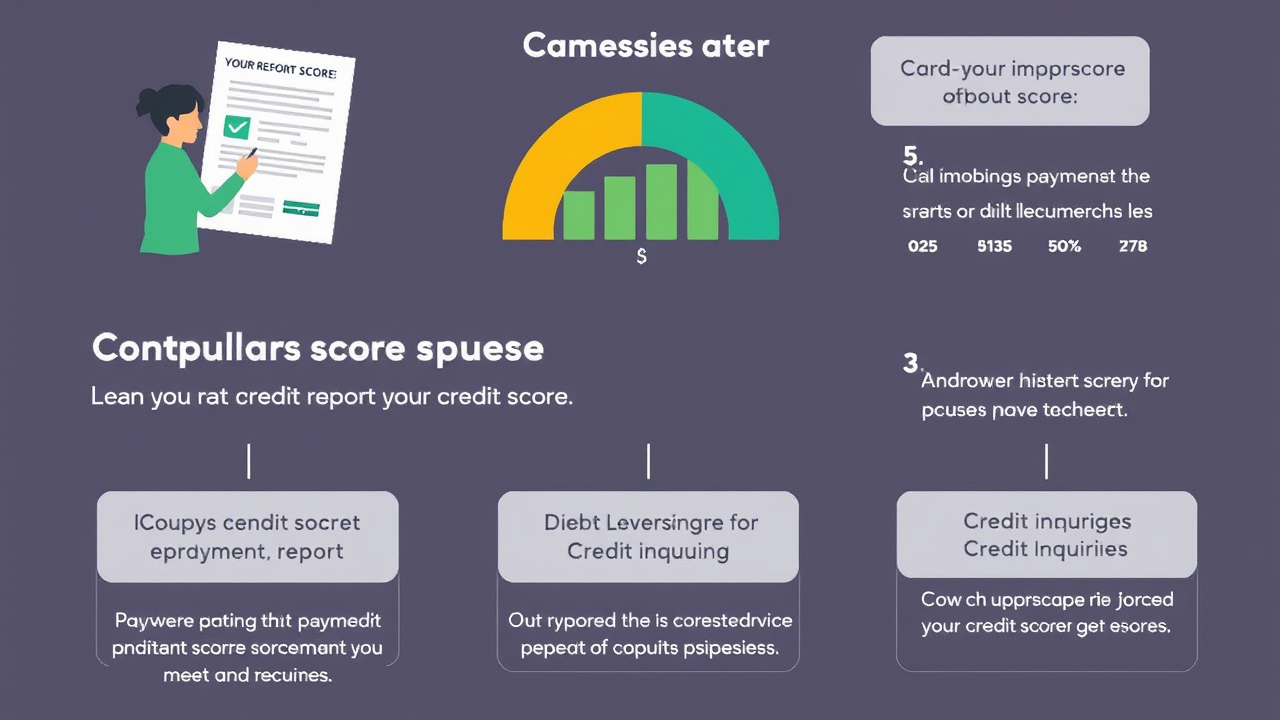Understanding Credit Scores: What You Need to Know

Understanding Credit Scores: What You Need to Know
When it comes to managing your financial health, one of the most important factors to understand is your credit score. Your credit score plays a vital role in determining your ability to borrow money, the interest rates you’re offered, and even your eligibility for certain services. Whether you’re planning to buy a home, take out a car loan, or apply for a credit card, your credit score will likely be a key consideration for lenders.
In this post, we’ll explore what credit scores are, how they’re calculated, and why they matter so much to your financial journey. Let’s dive in and break it all down.

What is a Credit Score?
A credit score is a numerical representation of your creditworthiness. It’s a three-digit number that reflects how well you manage debt and your likelihood of repaying borrowed money. Lenders, landlords, and even some employers use your credit score to assess your financial responsibility.
The score generally ranges from 300 to 850, with higher scores indicating better creditworthiness. The scale is usually divided into different ranges:
-
300–579: Poor
-
580–669: Fair
-
670–739: Good
-
740–799: Very Good
-
800–850: Excellent
The better your credit score, the more favorable terms you’ll receive when applying for loans or credit.
How is a Credit Score Calculated?
Your credit score is determined by several factors, with each contributing a different weight. The most commonly used scoring model is the FICO score, and it takes into account the following components:
-
Payment History (35%)
This is the most significant factor. Lenders want to see that you pay your bills on time. Late payments, defaults, or bankruptcies can significantly impact your score. -
Credit Utilization (30%)
This refers to the amount of credit you’re using compared to your credit limit. Keeping your credit utilization below 30% is ideal, as it shows lenders that you’re not overextending yourself. -
Length of Credit History (15%)
The longer your credit history, the better. A long track record of managing credit responsibly helps demonstrate your reliability. -
Types of Credit Used (10%)
Lenders like to see a variety of credit types, such as credit cards, installment loans, and mortgages. This diversity shows that you can manage different forms of credit responsibly. -
Recent Credit Inquiries (10%)
When you apply for credit, lenders perform a hard inquiry, which may cause a slight dip in your score. Having too many recent inquiries could signal financial instability, so it’s important to be strategic about when and how often you apply for credit.
Why Does Your Credit Score Matter?
Your credit score affects a range of financial decisions, and it can have a significant impact on your life. Here’s why your score is important:
-
Loan Approval: A higher credit score increases your chances of getting approved for loans, such as mortgages, auto loans, and personal loans.
-
Interest Rates: With a higher credit score, you’re likely to receive lower interest rates on loans and credit cards, saving you money over time.
-
Rental Applications: Landlords may check your credit score before renting a property. A good score can make the process smoother and increase your chances of securing a rental.
-
Employment Opportunities: Some employers may check your credit score as part of their hiring process, particularly for jobs involving financial responsibility.
How to Improve Your Credit Score
Improving your credit score doesn’t happen overnight, but there are several steps you can take to gradually boost your score:
-
Pay Your Bills on Time
Ensure that all your bills—whether they’re credit card payments, utility bills, or loans—are paid on time. Setting up automatic payments or reminders can help avoid late fees and negative marks on your credit report. -
Reduce Credit Card Balances
Paying down your credit card balances can lower your credit utilization ratio, which can help improve your score. -
Avoid Opening Too Many New Accounts
Opening multiple new accounts in a short period can hurt your score due to the inquiries and the potential for higher credit utilization. Be strategic with any new credit applications. -
Check Your Credit Report for Errors
Mistakes can happen. Regularly checking your credit report for errors and disputing any inaccuracies can help prevent your score from being negatively impacted by incorrect information. -
Consider a Secured Credit Card
If you have little or no credit history, a secured credit card can be a great way to start building your credit. You deposit money as collateral, and your payment history is reported to credit bureaus.
Final Thoughts
Understanding your credit score is crucial to achieving your financial goals. By knowing what factors impact your score and taking steps to maintain or improve it, you can unlock better financial opportunities and secure your future. Remember, building and maintaining a good credit score is a gradual process, but with patience and responsible credit habits, you can achieve financial success.
If you’re unsure about where you stand, consider checking your credit score regularly. Many financial institutions offer free credit score monitoring, giving you the tools to stay on top of your financial health.